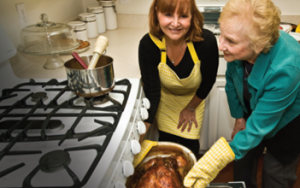SMYRNA (April 6, 2020) – The Delaware Emergency Management Agency (DEMA) and the State Health Operations Center (SHOC) are announcing today the designation of alternate care sites (ACS) in New Castle County to accommodate overflow patients from Delaware hospital systems as they begin to experience a surge in patients with coronavirus disease 2019 (COVID-19). Sites for the southern part of the state are expected to be announced later this week.
One alternate care site will be Governor Bacon Health Center, the Department of Health and Social Services’ long-term care facility in Delaware City, said DEMA Director A.J. Schall and Public Health Director Dr. Karyl Rattay.
Residents in two units will be transferred over several days this week – along with their current staff – to the Delaware Hospital for the Chronically Ill, another DHSS long-term facility in Smyrna. The residents from Governor Bacon will be placed in a separate unit at the DHCI Campus, isolated from current residents of DHCI. If all transferred residents clear the 14-day quarantine period, they will be integrated with the current residents of DHCI, said DHSS Secretary Dr. Kara Odom Walker, a practicing family physician.
Residents of one unit at Governor Bacon will remain on the second floor for 14 days, with the current staff caring for them. If those residents clear the quarantine period, they also will be transferred to Delaware Hospital for the Chronically Ill.
The residents’ families and Governor Bacon staff have been notified of Governor Bacon’s alternate care site designation and the impending move, Secretary Walker said. As floors of Governor Bacon are made available, they will be deep-cleaned by DHSS before they are used as an alternative care site, Secretary Walker said. When all residents are moved to Delaware Hospital for the Chronically Ill, Dr. Rattay said the State will have the potential of 75 additional beds at Governor Bacon for overflow patients from Delaware’s hospitals. Staffing to care for the potential overflow patients is currently being developed.
“We are grateful to the families of the residents and the staff for understanding why we have to move the residents of Governor Bacon,” Secretary Walker said. “Throughout this crisis, our top priority is the health and safety of our residents and also making sure that our staff who care for our residents are safe and healthy as well.”
Schall and Dr. Rattay said the other alternate care site being announced today by DEMA and SHOC is within Nemours/Alfred I. duPont Hospital for Children. Nemours will only be accepting transfers from Delaware community hospitals of non-COVID-19 adults.
Nemours duPont Hospital for Children has developed two treatment areas to provide medical care for non-COVID-19 adults. The rehabilitation gym, which is located one floor below the main level and away from pediatric care, has been converted into an alternative care site for low-acuity cases beginning with 38 beds, with possible expansion if needed. A medical intensive care unit will be situated across and separate from the pediatric intensive care unit, and be comprised of 24 beds.
Nemours’s treatment sites can become operational this week, and will begin providing medical care only once capacity is exceeded within Delaware’s community hospitals. Nemours’ surge sites will remain operational until community hospitals can reabsorb these non-COVID-19 adult patients.
Schall and Dr. Rattay said last week the State worked with Nemours, St. Francis Healthcare and ChristianaCare to identify options for the northern part of the state. After searching multiple possible sites with the Army Corps of Engineers, the Nemours campus was identified as the location that would provide the most efficiencies.
Nemours has worked diligently over the last week to prep part of its building and this week training will take place with Nemours, ChristianaCare and the Delaware National Guard.
Schall and Dr. Rattay said the State, National Guard and Army Corps of Engineers continue to work with Beebe Healthcare, Nanticoke Health Services and Bayhealth for options to place non-COVID-19 patients from the southern hospitals if surge occurs. Site assessments continue today, with potential options being the old Milford Memorial Hospital and a National Guard field option adjacent to one of the current hospitals.
For more information on COVID-19, http://de.gov/coronavirus
Follow Delaware Emergency Management Agency on Facebook, https://www.facebook.com/delawareemergencymanagementagency
Follow Delaware Emergency Management Agency on Twitter, https://www.twitter.com/delawareema
Contact: Jeff Sands, Delaware Emergency Management Agency, 302-659-2211.
